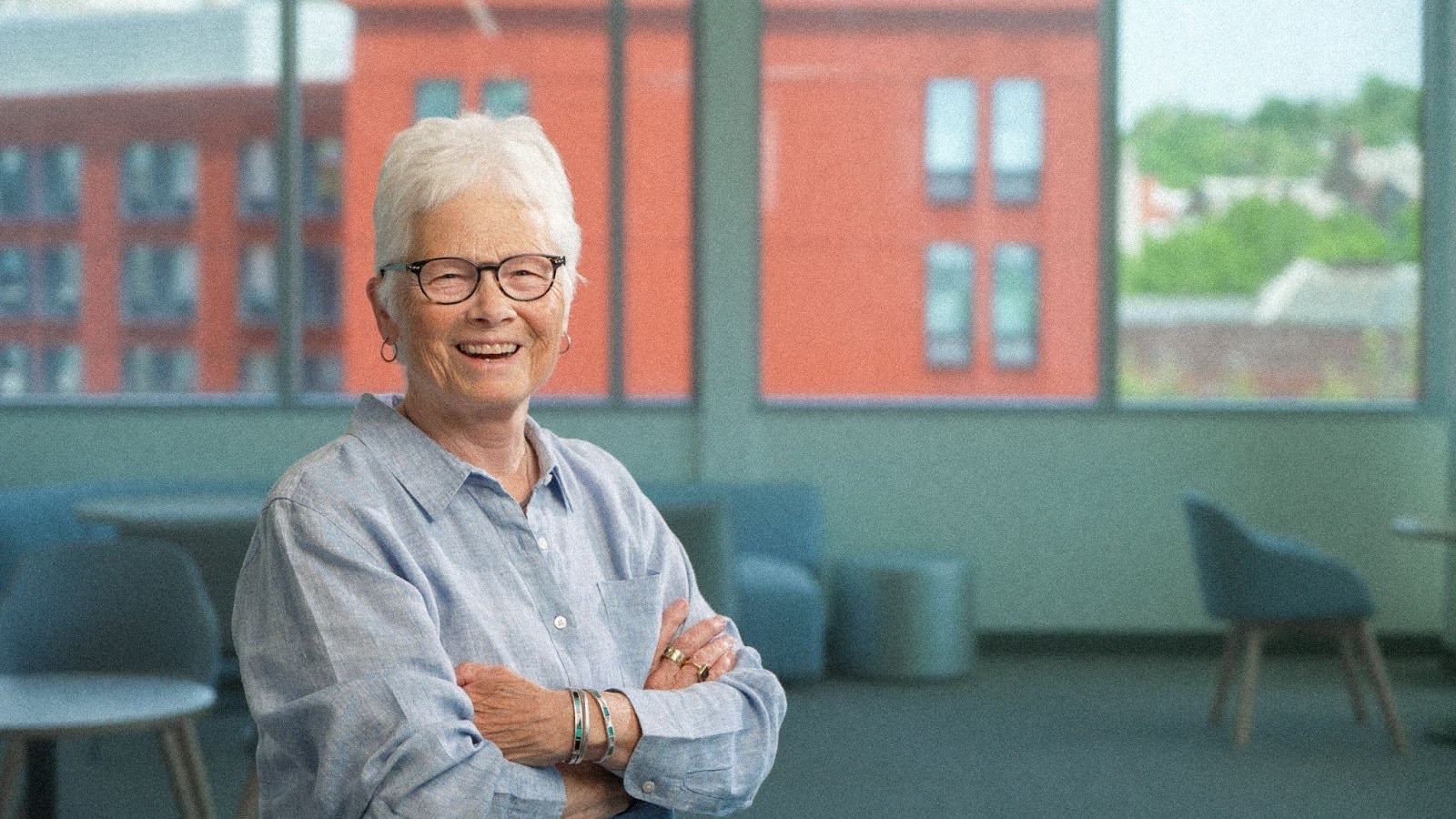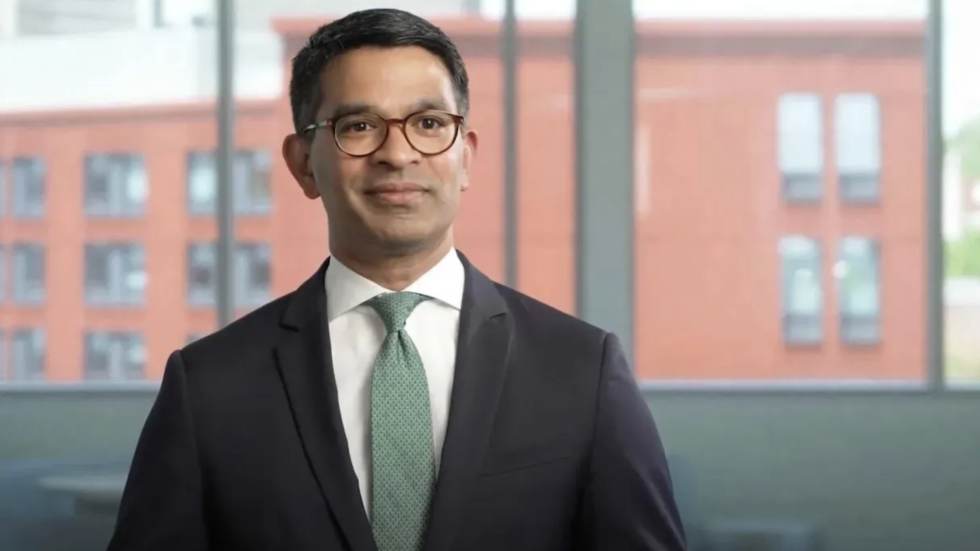2. What has been your most memorable teaching experience/moment at the School of Professional Studies?
One of my key roles has been debriefing 360 assessments with students in the executive master's programs. A 360 assessment involves students completing an inventory about their leadership skills. At the same time, data is collected from their peers, supervisors and direct reports. Many of these conversations have been transformative for the students. None of us see ourselves as others do, so it’s powerful to hold up a mirror and understand how others experience our leadership styles.
I believe that effective leadership is grounded in three key areas: theoretical understanding, relevant skills and self-awareness. The 360 tool provides leaders with valuable insights into how they are perceived, enabling them to identify what is working and what may need improvement. Many students have told me years later, “I remember the conversation we had, and it changed my life.”
3. What has been the most rewarding aspect of teaching at the School of Professional Studies?
One of the most rewarding aspects of teaching this population of older professionals is that our discussions are not purely theoretical. What we cover in the classroom is immediately applicable to their daily lives as leaders. When we discuss a skill or topic, they can go out and implement it right away. When they return, they share insights about what worked and what didn’t, which creates a real impact on their learning experience.
4. What skills do you believe are most crucial for professionals in today's rapidly changing job market?
A critical shift in leadership practice is that we are moving away from viewing leaders as authority figures who only direct others. The complex challenges our students face across various industries require the ability to motivate and engage their workforce. Understanding what people need and want in their work is essential, which necessitates strong listening skills.
Much of what gets accomplished in organizations hinges on the quality of relationships that leaders cultivate with others. While it’s often appropriate to direct people, the enthusiasm and commitment employees bring to their work are significantly influenced by the nature of their relationship with their team or organizational leader.
When I think about the things that are essential, I think about listening. At the School of Professional Studies, we emphasize adaptive leadership, which focuses on mobilizing people to take responsibility for the problems they face, rather than simply providing them with answers. This approach requires leaders to be excellent listeners, facilitators and fully engage with others.
5. How has the curriculum that you teach adapted to meet emerging industry trends and demands?
The complexity of the problems facing leaders and organizations today necessitates the ability to mobilize diverse expertise. Leaders must communicate effectively across functional lines and sometimes unite global teams. This is where technologies like Zoom and online collaboration become essential. The challenges we encounter require us to lead highly complex, interdependent teams located around the world, which demands a different skill set than when we all worked in the same office and interacted face-to-face.
6. What unique challenges and rewards come with teaching master’s students and adult learners?
Mid-career professionals are eager to learn. Having gained educational experiences earlier in their lives and having work experience, they return as highly motivated learners. They also bring a built-in learning laboratory, allowing them to apply what we discuss in class and evaluate its effectiveness in real-world situations.
In our programs, we attract individuals from a wide array of experiences, expertise and backgrounds. The diversity of viewpoints in the classroom is wonderful and enriching for everyone. It can be challenging to create an environment that is truly inclusive, but I believe we excel in doing this.
7. How has the curriculum you teach adapted to meet emerging industry trends and demands?
That's a big challenge. I think a key thing for me is to remember that what might have worked 20 years ago for students, may or may not work now. People enter the workplace with diverse expectations and what they value has also evolved. I prioritize being respectful of our students, as they are the experts on the ground. They often observe these changes more quickly than I do. I also believe that reading and staying informed about trends is incredibly important. Attending webinars and conferences, among other activities, is essential for keeping up with what’s happening in our field.
One of the most significant changes I’ve made in my teaching is that I create more space for introverts. Traditional pedagogy often favors extroverts who readily express their ideas and ask questions. However, there are brilliant individuals in every classroom who prefer to think before they speak. I want to ensure that we provide space for everyone to share their thoughts.
8. How has the shift towards online and hybrid learning models affected your teaching approach?
We were on the early edge of online education. Karen Sibley, the founding dean of SPS, was a strong advocate for using technology to facilitate online learning. Then, when COVID hit, it became essential for all of us to adapt; and we did so beautifully.
Early on, higher education viewed online learning as simply recording a lecture and posting it, which was minimally effective. However, pedagogy has evolved significantly. We now focus on how to use the online environment creatively to enhance engagement and ensure that learning is active rather than passive.
A crucial aspect of education is the sharing of ideas and collaboration among students. COVID and recent developments have challenged us to find ways to foster student interactions and build a learning community, rather than having students solely focus on the professor.
9. What advice would you give to professionals considering pursuing advanced education today?
It is never too late to learn new things. I am a prime example of this — I’m always teaching and learning simultaneously. If you’re curious about something, want to enhance your skills or are looking to make a career shift, engaging in some form of educational experience is a key way to do that.
For me, the learning never stops; curiosity is a constant. If you want to continue growing and evolving as a leader, ongoing learning is essential. Brown is an excellent place to do that.
10. Looking back, are you proud of how the School of Professional Studies has evolved and are you excited for the future that comes?
Oh, absolutely! I’m proud to be part of it and grateful for the experience. What excites me the most is the diversity of programming we offer. We have credit-bearing master’s degrees, on-campus and online executive education and certificate programs, and custom-made programs. It might sound a bit corny, but I believe there’s something for every adult learner looking to acquire new skills, whether for personal growth or to benefit their organization.
I love the flexibility our faculty and staff have in designing programs that meet the needs of adult learners. I think the future is bright. The quality of faculty at Brown is truly remarkable. As we bring more faculty into these programs, we provide students with an undeniably high-quality learning experience. I’m very proud of that and happy to be a part of it.
Additionally, when you look at all the teachers, staff, and faculty who have been here for over ten years — some for 40 years — it speaks volumes about the programs and the school itself. Our educators are not only exceptional but also genuinely enjoy being here with the students. It’s great to see such commitment and pride in their work.

